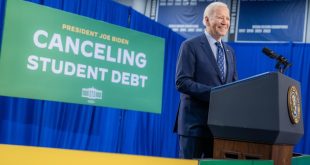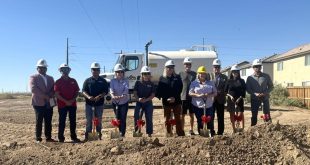
By: Dr. Alejandro Díaz-Bautista, Economist (Ph.D.)
A foreign direct investment (FDI) from the United States arrived in the state of Baja California, for more than 17,753 million dollars (MD) during the last two decades.
In the current context of a globalized economy, the economic growth of a state like Baja California cannot be explained without the various activities that international trade and border flows have emanated, among which the international capital flows have to be mentioned in Foreign Direct Investment (FDI) form.
“Currently and during the last two decades, the state of Baja California depends economically on the foreign direct investment (FDI) of the United States, which shows the importance of the success and entry into force of the USMCA for the state and the country,” said Dr. Alejandro Diaz-Bautista, economist, national researcher at Conacyt as well as a research professor at the Northern Border College (Colef).
The official Secretary of Economy figures from the first quarter of 1999 to the second quarter of 2019 indicate that foreign direct investment (FDI) from the United States has arrived in the state of Baja California, for 17.753.8 million dollars (MD).
This figure is impressive and shows how Baja California and Mexico depend economically on the United States. We note that the economic growth and industrial production of Baja California and the border states show high economic vulnerability to tariff renegotiation of the new T-MEC trade agreement’s rules of origin.
In the case of Baja California, the geographical location and proximity to the markets, access to lower labor costs, and the commercial conditions offered by the North American trade agreement constitute factors that make investments in the region attractive during the following years. For Baja California, economic policies as well as a clear regulatory framework, qualified human resources, the fight against insecurity, an environment prone to business, and openness to foreign trade, are factors that will influence the attraction of Direct Foreign Investment (FDI) in the coming years.
 The empirical experience of various economic research carried out at the Northern Border College (Colef) and in different contexts, confirms that foreign investment is determined by market size and commercial opening, as well as the country’s risk and respect for private property rights in the state.
The empirical experience of various economic research carried out at the Northern Border College (Colef) and in different contexts, confirms that foreign investment is determined by market size and commercial opening, as well as the country’s risk and respect for private property rights in the state.
The economic policy analysis indicates that the regions that have managed to attract foreign direct investment (FDI) have a competitive economy based on reliable institutions, control over insecurity, low levels of corruption and a state of the right to private property well protected by laws.
The excessive rules and operation of customs and labor market regulations, as well as the procedures and legal requirements to start new businesses, are barriers that discourage foreign and national investment, as well as the creation of formal jobs and limit the development of new sectors and activities.
Finally, state and federal economic policy must be oriented towards the implementation of actions that allow localized companies to absorb FDI, as well as the attraction of new international companies in the entity and in the country.





